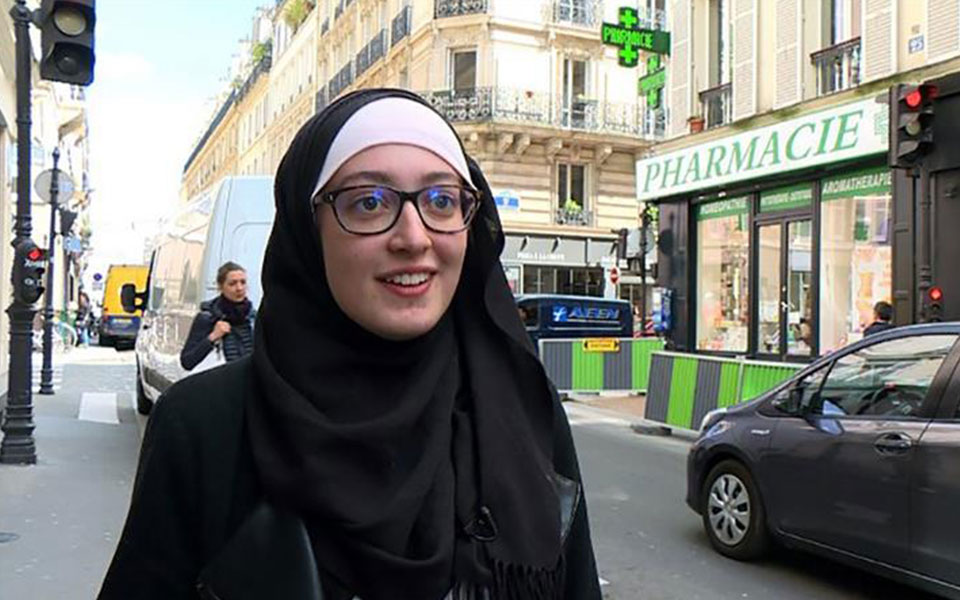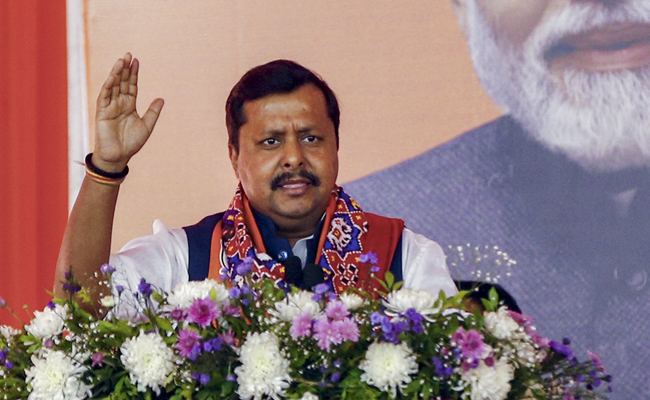May 24: Maryam Pougetoux, a student at one of France's top universities has found herself at the centre of a media storm after she appeared in a documentary wearing a headscarf.
She had appeared in the film to talk about student protests in the country, which have been ongoing since April this year.
The student activist is the president of the student union at Paris-Sorbonne IV University in the French capital.
It was not her thoughts on the protests that drew controversy, instead, it was the headscarf she wore while being filmed.
Since the interview, she has been criticised by French Interior Minister Gerard Collomb, who said the appearance was "shocking" and accused Pougetoux of wanting to proselytise her religion.
French Equality Minister Marlene Schiappa also weighed in, calling Pougetoux's choice of headwear a "manifestation of political Islam".
The student defended her decision to wear the scarf in an interview with Buzzfeed, in which she said her headscarf had "no political function" and that her religion did not affect her ability to perform her duties as the union president.
"When I defend students, I do not ask myself about their skin colour, their sexual orientation, their philosophy of life," she told the news outlet.
The coverage has sparked intense debate in France, which has, in the past decade and a half, witnessed several major controversies over what Muslim women wear.
In 2004, legislators passed a law banning the display of religious symbols in schools, which included the headscarf. University students, however, are still allowed to wear headscarves.
In 2010, the country introduced a ban on the face covering worn by a small minority of Muslim women, known as the niqab.
Later in 2016, an image of French police officers in southern France asking a Muslim woman to remove a burkini swimsuit, which covers much of the body and hair went viral.
The officials were acting to enforce a locally implemented ban on the dress but also ended up targeting women who were deemed to be covering excessively.
France's highest administrative court struck down the bans, declaring them a violation of "fundamental liberties".
Advocates of restrictions on Muslim religious clothing say they are ensuring the separation of religious and public life or protecting the French brand of secularism, which is known as Laicite.
However, Muslim civil liberties activists say the restrictions are influenced by prejudice towards Muslims and other communities.
"Maryam Pougetoux has again showed that France has a deep problem with its own minorities and an even bigger one if they dare to speak in public," said activist Yasser Louati.
"Thanks to this controversy, the whole country forgot why she spoke in the first place and the mobilised the students she represented," he added.
He went on to say the controversy would not be the last to involve the headscarf.
courtesy : www.aljazeera.com
Let the Truth be known. If you read VB and like VB, please be a VB Supporter and Help us deliver the Truth to one and all.
New Delhi (PTI): BJP national president Nitin Nabin was on Tuesday nominated as the party's candidate from Bihar for the upcoming Rajya Sabha polls.
The ruling Bharatiya Janata Party (BJP) has released a list of nine candidates for the Rajya Sabha polls, fielding its former West Bengal unit chief Rahul Sinha and Chhattisgarh unit vice-president Laxmi Verma from the respective states.
ALSO READ: Does PM Modi support head of state's assassination as way to define world order: Rahul
Assam PWD Minister Jogen Mohan and MLA Terash Gowalla will be the saffron party's candidates for the elections to the Upper House of Parliament from the state.
The BJP has also nominated its Odisha unit president, Manmoham Samal, and leader Sujit Kumar, an incumbent Rajya Sabha MP, as candidates from the state for the upcoming polls.
BJP leader Shivesh Kumar will join the fray from Bihar and Sanjay Bhatia, a former Lok Sabha MP of the party, will be its candidate from Haryana. Kumar is Bihar BJP's general secretary.
The names of the candidates have been approved by the party's central election committee, BJP national general secretary Arun Singh said.





